Guest blog by: Shelly Ericksen, Surfrider Foundation San Francisco Chapter
Throughout the year, the NOAA Marine Debris Program will spotlight each region for an entire month. Keep an eye on our blog and social media to learn about exciting marine debris projects and initiatives throughout the country.
Much of San Francisco’s beauty comes from its stunning location, surrounded by the Pacific Ocean and San Francisco Bay. San Francisco is also the second-most densely populated city in the United States and one of the country’s most-visited destinations. With so many people near so much water, the marine environment is especially vulnerable to all forms of human-made pollution, including cigarette butts, the most littered item in San Francisco and around the world.
Cigarette butts are made of tiny threads of cellulose acetate—the same plastic used in sunglasses—and are loaded with toxic chemicals, including arsenic, lead, and cadmium. The cigarette butts casually littered on San Francisco’s busy streets are easily swept into storm drains or directly into the ocean or bay, harming marine life.
Since 2015, the Surfrider Foundation San Francisco Chapter’s Hold On To Your Butt program has worked to prevent cigarette litter in the marine environment through education, beach, and neighborhood cleanups, and by providing disposal options, such as cigarette butt receptacles or “buttcans.” Being awarded with a NOAA Marine Debris Prevention grant in 2018 infused the program and its volunteers with the resources and drive to increase the reach and impact of cigarette litter prevention messaging, and to expand the distribution of buttcans into the Golden Gate National Recreation Area along San Francisco’s coast.
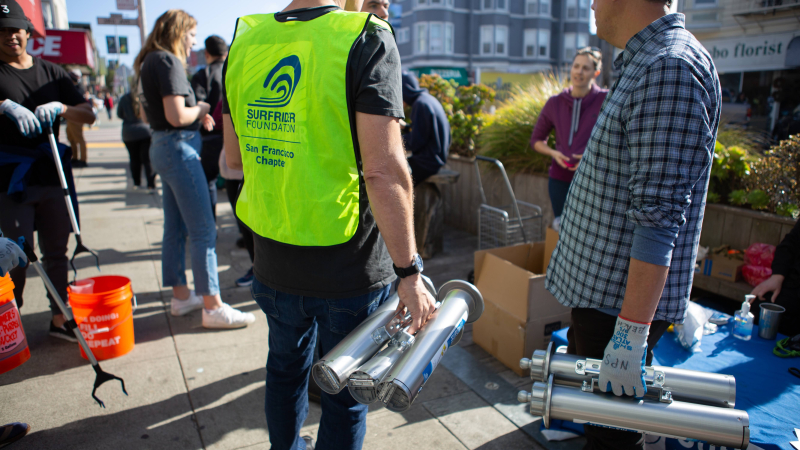
Our funded work began with research, surveying smokers around the city to understand their attitudes and beliefs related to cigarette butt disposal. We found that many respondents were unaware that cigarette filters are made of plastic. Many also did not realize that flicking cigarette butts onto city streets can have the same harmful outcome as tossing the butts directly into the ocean or bay. Overwhelmingly, smokers told us that they would litter less if they had more places to safely dispose of the butts.
We used this research to develop an education and outreach campaign targeted at changing the littering behavior among San Francisco’s residents and visitors. It was important to us that the campaign reflect the local population and for key messages to be translated into Chinese and Spanish, the second- and third-most commonly spoken languages in San Francisco. The resulting ad campaign encouraged smokers to love San Francisco by “holding on to their butts” rather than littering them. The public service announcement and outreach materials in multiple languages helped illustrate the connection between a clean city and a pollution-free ocean.
We also installed cigarette buttcans throughout the city and the Golden Gate National Recreation Area to increase access to proper places for cigarette butt disposal. Thanks to the efforts of our volunteers, and to mission-critical partnerships, 175 buttcans were installed with commitments from San Francisco Public Works, the National Park Service, and community-based litter removal organizations to service the cans.
We also distributed 13,000 “pocket ashtrays” – reusable, portable, fireproof containers to stash cigarette butts in until they can be safely disposed of. Smokers can pick up a free pocket ashtray from participating local businesses and find the nearest buttcan on the Buttcans & Free Pocket Ashtray Map.
Thanks to the support of the NOAA Marine Debris Program, Surfrider volunteers, and local partners, the Surfrider Foundation San Francisco Chapter has recycled more than 825,000 cigarette butts and prevented countless more from entering the marine environment. We expect the program’s benefits to continue for years to come.

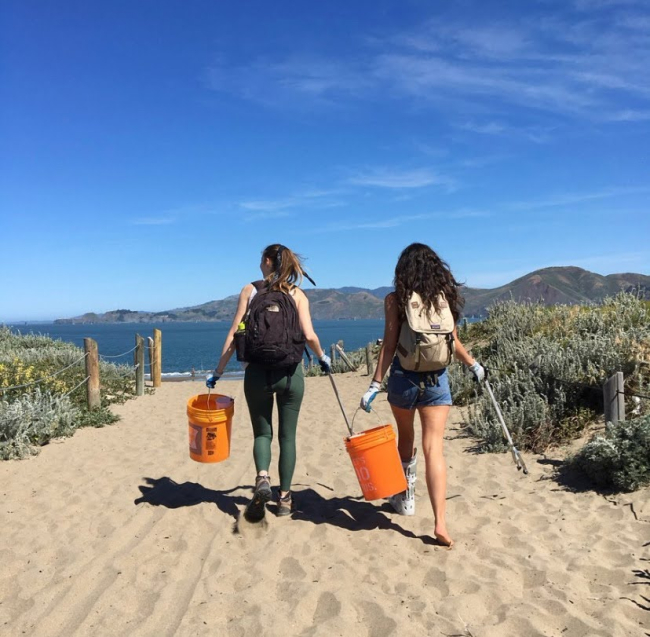
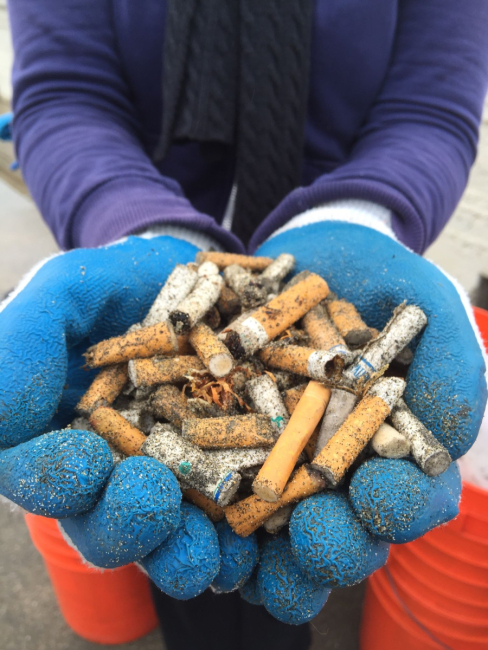
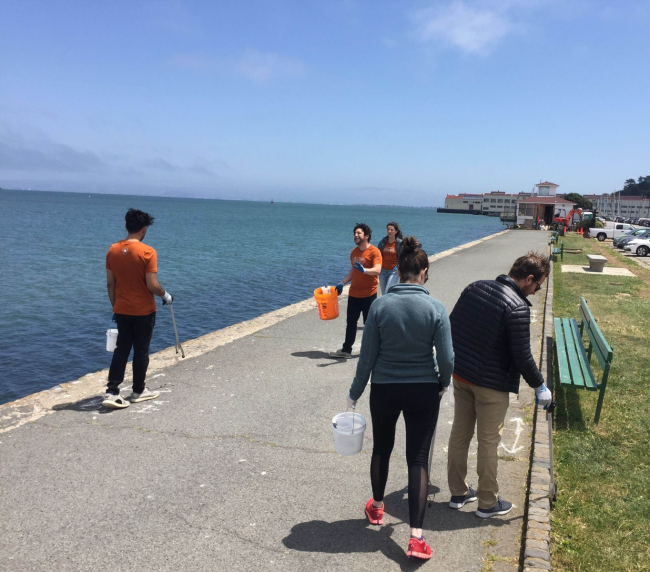
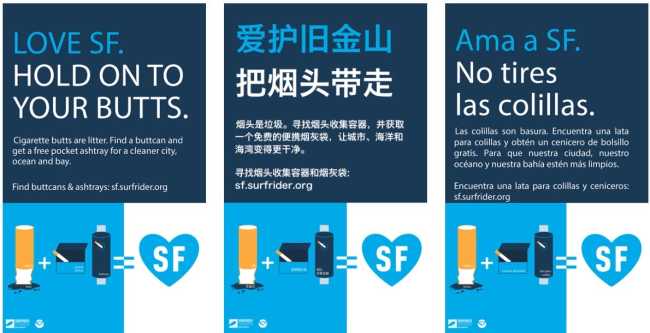
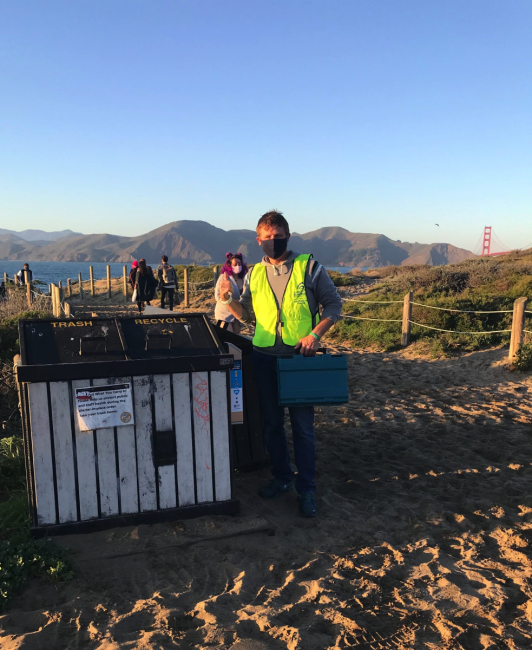
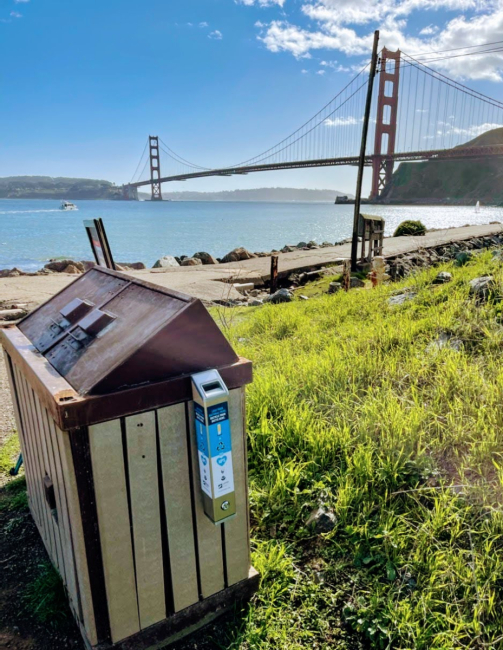
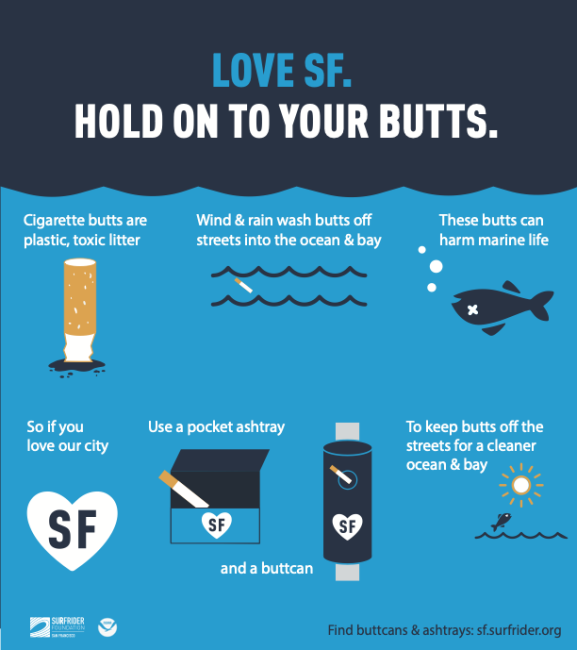
Good effort. Thanks. The Cellulose Acetate you mention is not plastic but dissolving wood-pulp- based filter tow. So potentially biodegradable.